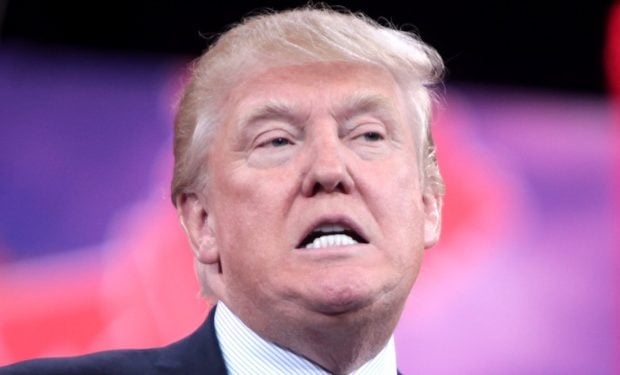Harvard legal scholar and Constitutional law expert Laurence Tribe was unflinching in his criticism of the Supreme Court’s decision to hear former President Donald Trump‘s immunity claim.
Ignoring “the public need to get this trial going and have a verdict before the election,” the SCOTUS created an unnecessarily abstract question to consider which will create even more delay, Tribe said.
The Court had a chance — and failed — to frame the Trump claim as a single, narrower question: “Whether a president charged with criminally seeking to remain in office beyond the end of his term has absolute immunity from prosecution.”
But after much hand-wringing by Trump antagonists — including Tribe — over the inevitable delay brought about by the SCOTUS decision, which scheduled oral arguments for April 22, some began to come around to the idea that the delay doesn’t necessarily preclude Trump’s trial(s) from taking place in August or September — or even October or November.
One reason for the turnabout is further consideration of the 60-day “rule” — bandied about by Trump’s team and others as a reason a trial shouldn’t take place within two months of the election. The 60-day rule, interpreted Trump’s way, means a trial so close to election day would constitute “election interference.”
Trump’s rhetoric portrays all his legal troubles as attempts at election interference by his opponents, but there was concern even among Trump’s detractors that the DOJ’s 60-day rule — an informal internal recommendation that charges not be brought against a candidate within 60 days of an election — would impact the feasibility of getting a trial started in light of the new delays.
[NOTE: An endgame for Trump is to win the presidency and dismiss the cases, which a delay of trial(s) beyond election day could enable.]
But Tribe is among many legal experts now explaining that the 60-day prohibition is not applicable to Trump’s case (since the indictments happened long before the timeframe), nor is it a law (instead only internal DOJ “guidance.”)
Exactly
— Laurence Tribehttps://t.co/Thp6FbY2m7

(@tribelaw) March 2, 2024
To drive home the point, elections lawyer Marc E. Elias, who won dozens of cases against Trump regarding the integrity of the 2020 elections, says “there is no reason Donald Trump can’t be in the midst of trial on Election Day.”
To clarify, there might be a policy about opening an investigation, or even handing down an indictment.
— 𝕋𝘳𝘦𝘷𝘰𝘳 𝔹𝘰𝘶𝘳𝘨𝘦𝘵 (@trevorspoke) March 1, 2024
But Trump criminal prosecution has already commenced.
Jay Bratt said that policy does not apply to setting a trial date.
“We are in full compliance of that policy, that it…
[NOTE: Republican lawyer and devout anti-Trumper George Conway has suggested that a later trial, which the SCOTUS decision seems to augur, as long as it takes place before the election, would worsen Trump’s chances at winning in November.]
Tribe recently shared a post indicating that not only could trials start, but more charges could be brought against the former President within 60 days of the election. Tribe shared that “Jay Bratt, Chief of Counterintelligence at DOJ’s National Security Division” testified that the “DOJ has no regulations saying it must refrain from bringing criminal cases against defendants within 60 days of an election. Nor would any such policy be justifiable.”
Jay Bratt, Chief of Counterintelligence at DOJ’s National Security Division, told the court that DOJ has no regulations saying it must refrain from bringing criminal cases against defendants within 60 days of an election. Nor would any such policy be justifiable.…
— Laurence Tribe
(@tribelaw) March 1, 2024
AngryStaffer, a popular X commentator on political and military affairs, wrote: “I hope folks understand how big this DOJ 60 day window not applying to Trump is. That means that DOJ is willing to try these cases into September, October, and early November.”
I hope folks understand how big this DOJ 60 day window not applying to Trump is.
— Angry Staffer
That means that DOJ is willing to try these cases into September, October, and early November.
It makes the SCOTUS delay much less daunting, and raises the likelihood of pre-election conviction.(@Angry_Staffer) March 1, 2024
